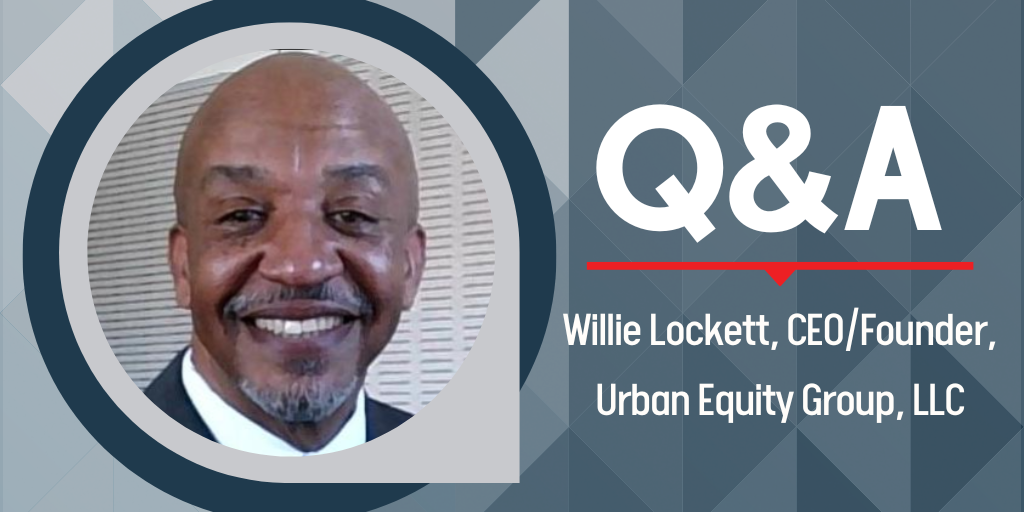You are the CEO/Founder of the Urban Equity Group, LLC. The Urban Equity Group was formed to provide quality Information Technology (IT) services through a lens of social advocacy. What inspired you to get involved in this work, and how is it relevant to individuals involved with the criminal legal system?
The Urban Equity Group is a socially responsible tech company with the vision of using technology to move equity forward. In addition to IT consulting with businesses, nonprofits, and private individuals, Urban Equity Group also partners with community organizations to deliver digital literacy training for their service utilizers. Digital literacy includes using common software to type documents, create presentations, or organize spreadsheets.
My personality, along with my life experiences, are what led me to social advocacy through IT within the criminal legal setting. First, I am the son of a justice-involved person, the brother of a justice-involved person, and the father of a justice-involved person. Second, I have a history of working with and supporting community needs; what I do best are IT and IT service delivery. So, that, along with my family’s justice-involved condition naturally led me to teaching technology literacy skills to individuals involved in the criminal legal system.
It was my son’s arrest and his ultimate transformation that inspired me to move in this direction. I saw how a lack of digital skills results in a lack of access to information, resources, health and financial records, education, workforce development, and jobs. Ultimately, it is the lack of access to opportunity. So, if you are at a deficit in these areas, you are not fully franchised as a citizen.
Technology literacy can be necessary to achieve basic things such as food, transportation, and employment. These skills can be harder to obtain for individuals with mental health disorders, particularly while incarcerated. How does Urban Equity Group support those reentering the community with acclimating to the latest technological advancements?
Absolutely. I see this as an issue of health and citizenship. Folks reentering the community are at a disadvantage when it comes to technology because of their limited access and familiarity. Our solution is to close the technological gap and transform their relationship with technology. Our intent is to remove productivity challenges and to promote access to opportunities, so when they are released, they will be able to leverage technology and make the most of the moment. I think of this as digital health.
We have recently partnered with Black Men Speak & Men of Color, an organization geared toward managing trauma through storytelling, to provide a trauma-informed digital health program. The partnership creates the perfect environment to increase the digital health of trauma-affected individuals. Understanding how trauma affects learning must be considered when providing instruction. Our program intends to build a sense and climate of resiliency, a trait that has been identified as critical for those who are trauma-affected. Authority distrust also has been identified as an issue that affects learning. We address this by having an instructor who mirrors the population we serve and is trauma informed.
The trauma-informed digital health program is currently in the ramp-up phase. We expect to have an online presence for this partnership in fall 2022. We are currently seeking additional partner organizations and recruiting participant candidates.
What other challenges related to tech literacy do you see among individuals with mental health disorders or a trauma history, and what are some special considerations we should be mindful of when providing technology skills to this population?
This population is not in high school or college; they are adults. They are not looking for approval from their families. Many of the people I have encountered are self-directed and bright. Your reentry status does not speak to how intelligent you are. People reentering the community have life experiences and transferable skills that should be acknowledged.
We are sensitive to those that have experienced trauma and understand some other demands in their lives may preoccupy them—money, a parole officer, living arrangements—and so we are sensitive to those other needs. Once again, they are not high school or younger students; many times, they are looking for immediate results. They do not want to be lectured; they want tools they can use on the first day.
The program we are starting with Black Men Speak & Men of Color is built around the principle that achievement, fulfillment, and autonomy are critical to resilience. The program will uphold and impart these factors. Achievement is met by giving voice to personal stories of what it is like to be a person of color with trauma or to have mental health or substance abuse issues and using those experiences to learn, grow, and build a better life. Second, we support a sense of fulfillment by encouraging help and collaboration. Finally, we have incorporated opportunities for self-determination by providing a list of training areas for individuals to choose from, including technology skills they can immediately apply in their personal (e.g., sending a text) and professional (e.g., drafting a resume) lives.
Many of us seek ways to step away from technology from time to time. What strategies do you use to take a break from technology and foster meaningful connections in your downtime?
Well, I like to talk with people, and I just like simple things, really. I enjoy playing chess. I help my neighbors. I enjoy deep conversations. I am a lifelong learner. I enjoy movies that explore the human experience, something that is going to feed me. I have family members that I need to stay connected with and enjoy. One of the most fun things I have done recently was to just go and visit my grandson. I spent about 3 weeks with him and his dad, and that was really rewarding.
Like what you’ve read? Sign up to receive the monthly GAINS eNews!


